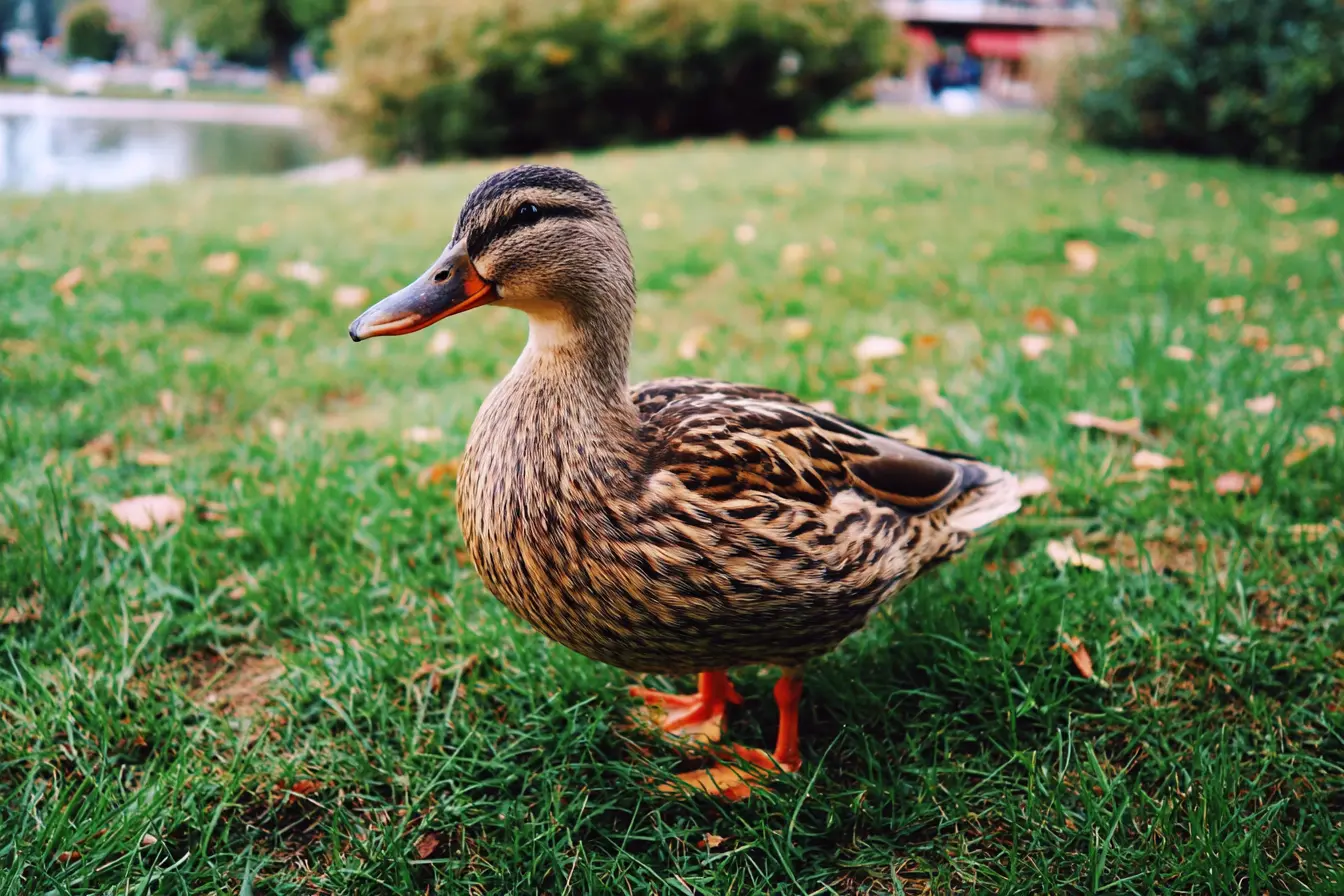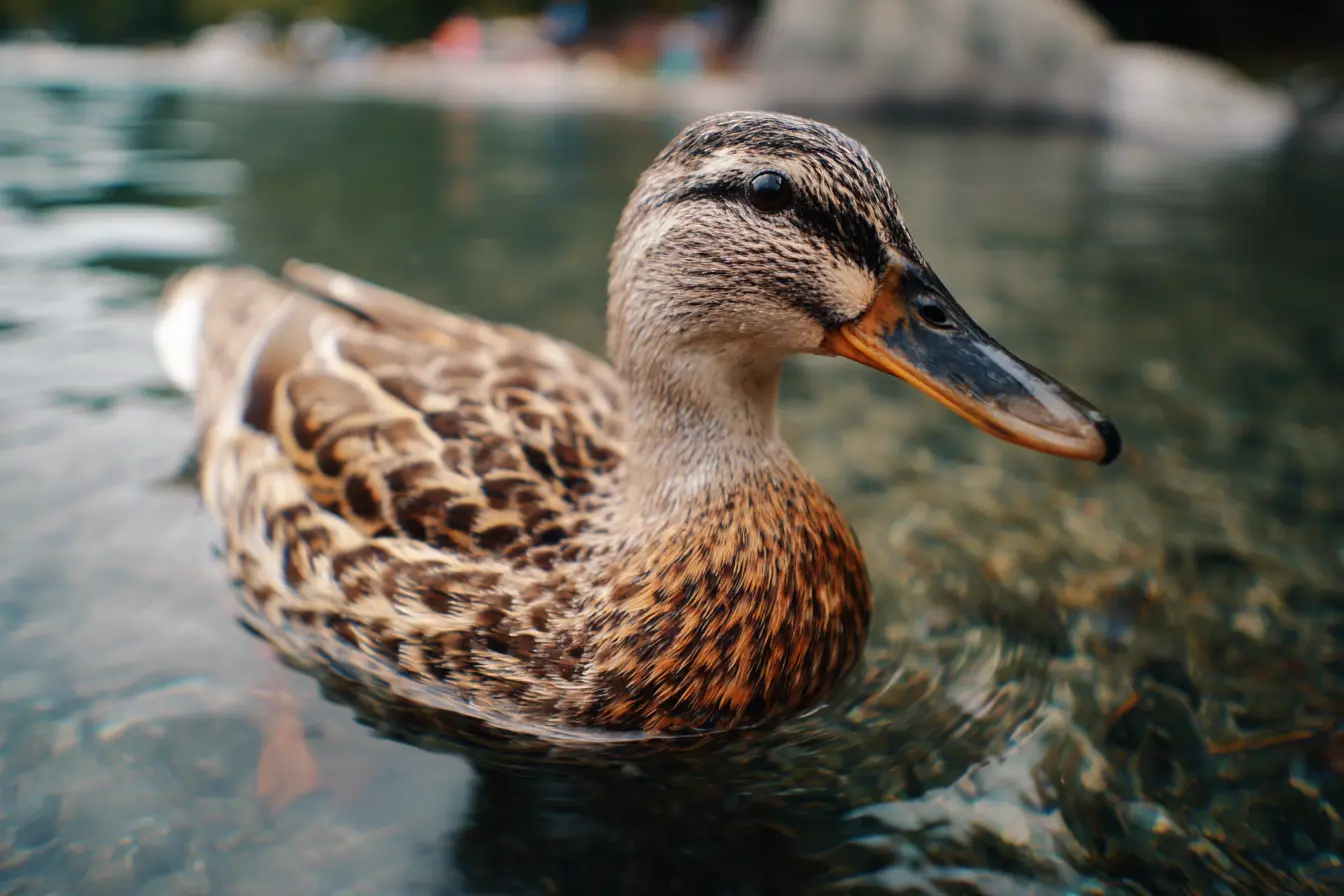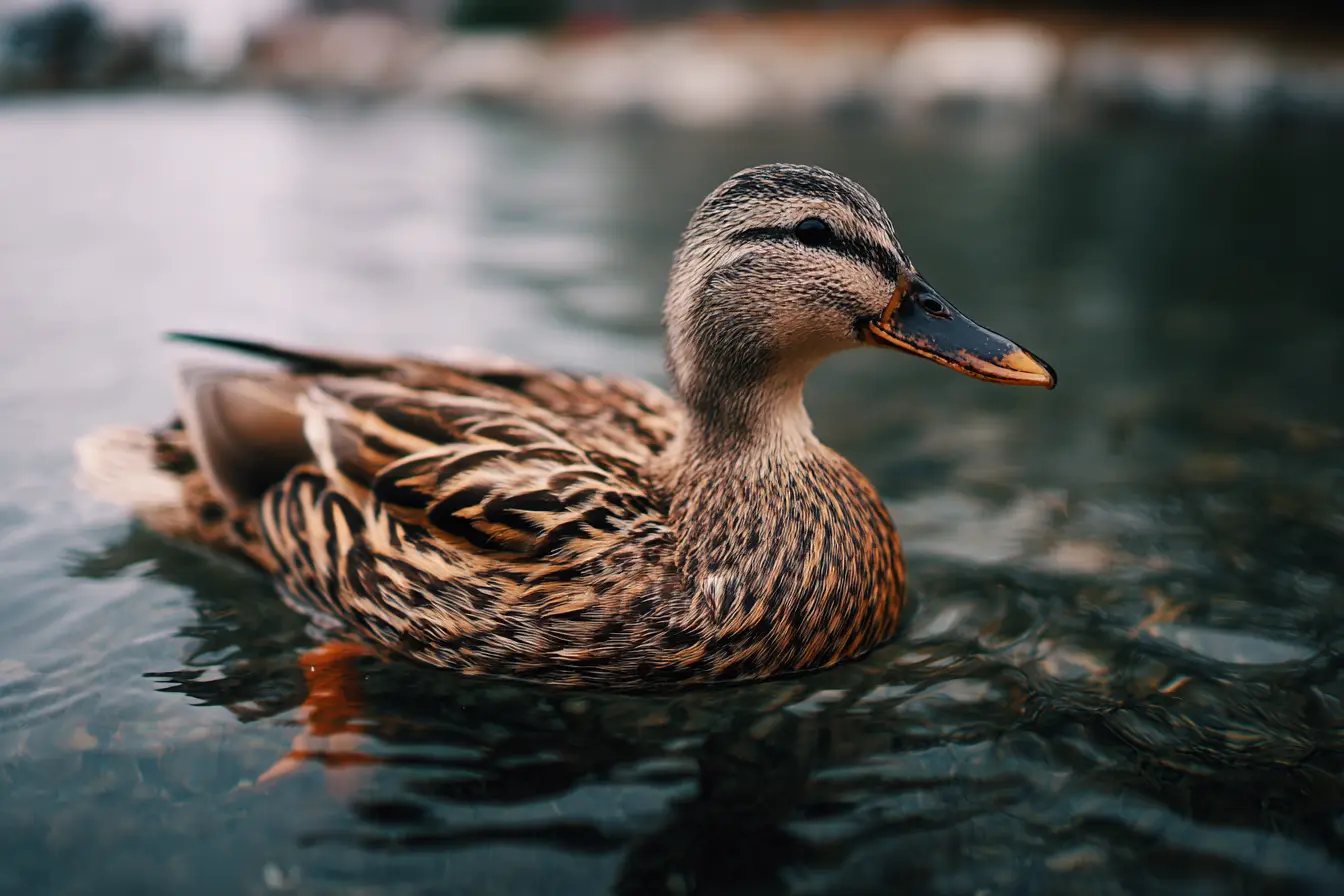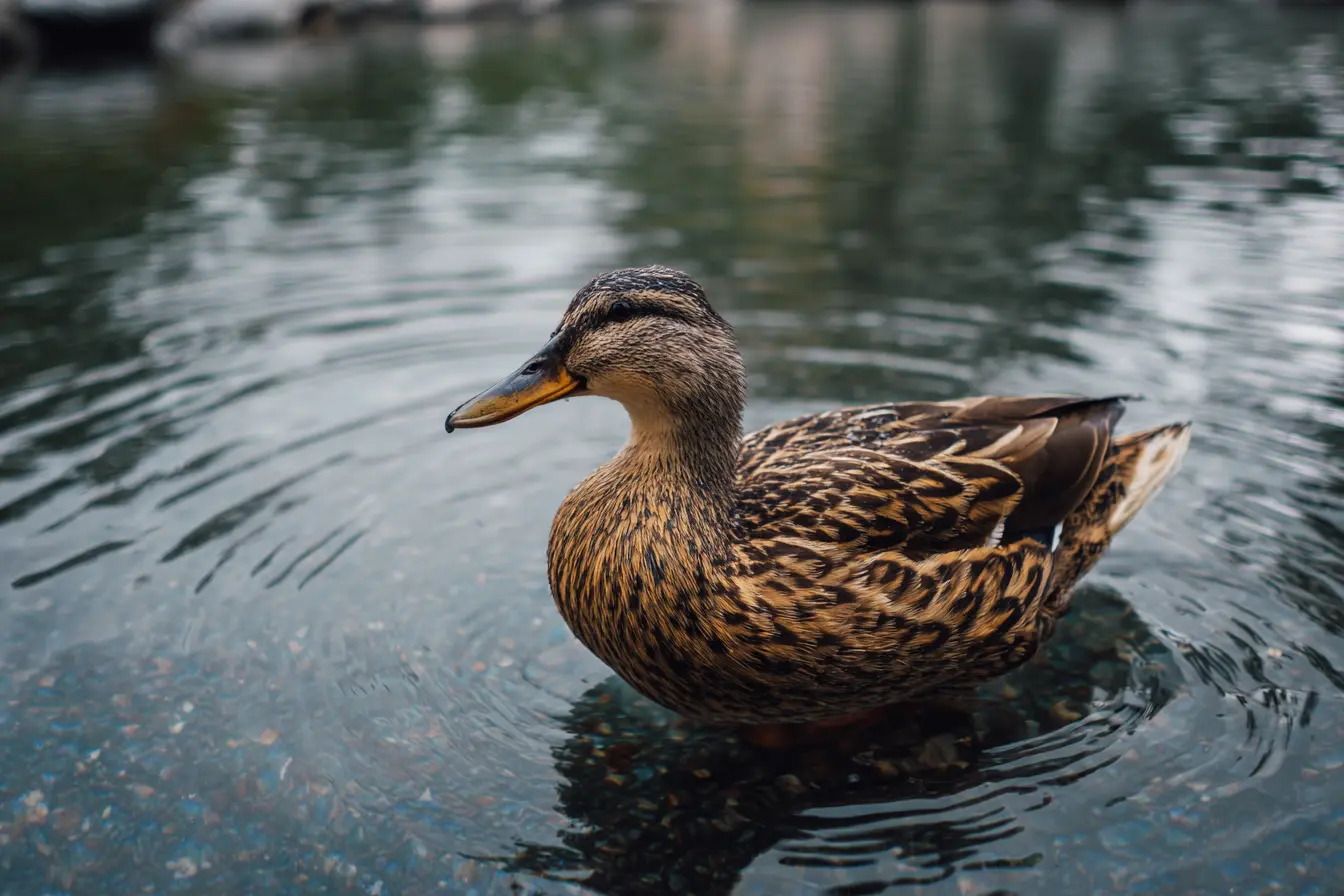
Meningitis in Ducks: Understanding a Silent Killer
Meningitis is a serious, often fatal condition that can affect ducks, particularly young ducklings. Though not commonly discussed, it is usually a secondary complication of bacterial infections such as Riemerella anatipestifer or E. coli. If left untreated, meningitis can result in severe neurological symptoms and high mortality within a flock.
This post explores what meningitis is, what causes it in ducks, how to recognise it, and what can be done to treat or prevent it.
What is Meningitis?
Meningitis is the inflammation of the meninges—the protective membranes covering the brain and spinal cord. In ducks, this inflammation is almost always the result of a bacterial infection that has entered the bloodstream and reached the brain.
Unlike in humans, where viral meningitis is more common, in ducks it is usually bacterial and often fatal if not caught and treated early.
Causes of Meningitis in Ducks
Meningitis is not a primary disease but a secondary complication of systemic infection. The most common causative agents include:
- Riemerella anatipestifer
- Escherichia coli (E. coli)
- Salmonella spp.
- Pasteurella multocida
These bacteria can enter the body through:
- Open wounds
- Contaminated water or bedding
- Respiratory infections
- Infected navels in newly hatched ducklings
Once in the bloodstream, the bacteria may cross the blood-brain barrier, leading to inflammation in the central nervous system.
Risk Factors
The likelihood of meningitis increases with:
- Poor hygiene or dirty brooder conditions
- Cold or damp housing that stresses the birds
- Overcrowding, leading to rapid spread of infection
- Young age—ducklings under 8 weeks are especially vulnerable
- Concurrent infections or weakened immune systems
Symptoms of Meningitis in Ducks
Symptoms of meningitis in ducks are primarily neurological and can come on suddenly. Watch for:
- Head tremors or shaking
- Incoordination or stumbling
- Twisted neck (torticollis)
- Seizures or convulsions
- Head held against the ground or body
- Lethargy and unresponsiveness
- Inability to stand or walk properly
- Sudden death
These signs can easily be confused with vitamin deficiencies, inner ear infections, or toxins, so professional diagnosis is important.
Diagnosis
Diagnosing meningitis in ducks requires veterinary involvement. Methods include:
- Post-mortem examination
- Bacterial culture of brain tissue or cerebrospinal fluid
- PCR testing to identify specific pathogens
- Observation of symptoms alongside known flock infections
Due to the subtle and rapidly progressing nature of the disease, many cases are only confirmed after death.
Treatment
If caught early, aggressive antibiotic treatment may help, but the outcome is often poor once neurological signs appear. Treatment may include:
- Vet-prescribed antibiotics that can cross the blood-brain barrier
- Supportive care: warmth, hydration, and easy access to food
- Isolation from the rest of the flock
Birds that survive may still have long-term neurological damage and may need to be euthanised on welfare grounds if quality of life is compromised.
Prevention
Prevention is far more effective than treatment. Key steps include:
Hygiene and Biosecurity
- Keep housing clean, dry, and well-ventilated
- Disinfect equipment regularly
- Change bedding frequently, especially for young ducklings
Stress Reduction
- Avoid overcrowding
- Maintain stable temperatures and humidity in brooders
- Handle birds gently and minimise disruption
Prompt Treatment of Infections
- Act quickly when birds show signs of respiratory illness
- Consult a vet to control outbreaks of E. coli or Riemerella
Good Hatchery Practices
- Ensure navels of newly hatched ducklings are dry and closed
- Source birds from clean, reputable hatcheries
Meningitis vs Other Conditions
Meningitis can be mistaken for:
- Niacin deficiency (similar leg weakness and incoordination)
- Toxins such as mouldy feed
- Wry neck from vitamin E or selenium deficiency
- Inner ear infections
Proper diagnosis is essential for determining the right course of action.
Key Takeaways
- Meningitis in ducks is a severe neurological condition caused by bacterial infection
- It most often affects ducklings and spreads rapidly in unhygienic or crowded environments
- Symptoms include head shaking, seizures, twisted neck, and incoordination
- Prognosis is poor once symptoms appear, but prevention is very effective
- Good hygiene, stress reduction, and early treatment of infections are vital
Final Thoughts
Meningitis in ducks is a heartbreaking condition to witness, but with proactive care and clean conditions, it is largely preventable. If you suspect meningitis in your flock, don’t delay—contact a poultry vet immediately for guidance. The sooner you act, the better the chance of protecting the rest of your birds and stopping the spread.
Vets near you
Speciality vets
- Aquatics vet specialists
- Birds vet specialists
- Camelids vet specialists
- Cats vet specialists
- Cattle vet specialists
- Deer vet specialists
- Dogs vet specialists
- Equines vet specialists
- Exotic vet specialists
- Goats vet specialists
- Pigs vet specialists
- Poultry vet specialists
- Sheep vet specialists
- Small Mammals vet specialists
- Wild vet specialists
Vet facilities
- Accessible by public transport
- Blood testing
- Car park nearby
- Client car park
- Dentistry
- Diagnostic imaging
- Disabled public access
- Flea and worm treatments
- Microchipping
- Mobile services
- Neutering
- Open at weekends
- Out-of-hours service
- Referral interests
- Referrals only
- Street parking outside
- Toilets available
- Vaccinations



